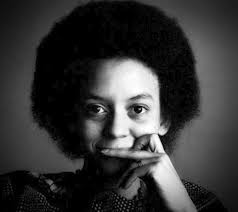Iconic poet was central to the Black Arts Movement undergirding the Civil Rights era
Greg J
The Legacy of Nikki Giovanni: A Voice That Defined Generations
Nikki Giovanni, the iconic poet, writer, and activist, passed away on December 9, 2024, leaving behind a profound legacy that has shaped the landscape of American poetry and culture. Known for her unapologetic voice, bold themes, and fierce advocacy for civil rights, Giovanni’s work resonated deeply with multiple generations. Her poetry spoke not only to the struggles of African Americans but also to the universal human experience of love, resistance, and self-empowerment.

A Voice of Empowerment
Born in Knoxville, Tennessee, in 1943, Nikki Giovanni emerged as a significant literary figure in the 1960s, a time when the Civil Rights Movement was in full force and the Black Arts Movement was flourishing. Her poetry became a powerful instrument for social change, channeling the frustration, hope, and resolve of Black America. Giovanni’s voice was unmistakably bold, often challenging systems of oppression while encouraging Black pride and solidarity.
Her landmark collection, Black Feeling, Black Talk, published in 1968, marked her as one of the preeminent voices of the Black Arts Movement. The collection’s simplicity and directness conveyed profound truths about the Black experience in America. Giovanni’s ability to speak plainly but poignantly made her work accessible while maintaining its emotional and intellectual depth. Poems like “Nikki-Rosa” and “Ego Tripping (there may be a reason why)” celebrated the beauty, resilience, and dignity of Black life, rejecting the negative stereotypes often imposed upon African Americans.
A Champion for Social Justice
Giovanni’s activism was woven throughout her work, her voice regularly ringing out in support of the Black community, women’s rights, and broader human rights causes. She was one of the first poets to publicly speak out against the Vietnam War and was an active supporter of the feminist movement. Giovanni was also a staunch advocate for the LGBTQ+ community, challenging societal norms with an openness that was rare for poets of her generation.
Her work was not confined to poetry alone. Giovanni wrote essays, children’s books, and even songs, all of which helped amplify her call for equality and justice. Her teaching career at Virginia Tech, where she served as a professor for many years, allowed her to inspire countless young minds, fostering the next generation of writers and thinkers.
A Legacy of Resilience and Love
What makes Giovanni’s work enduring is its deep humanity. While she tackled the hardest issues of racial injustice, war, and inequality, her poetry also celebrated life in all its complexities. Giovanni was known for her love poems, which ranged from deeply personal to universally romantic, showing that her emotional range spanned more than just political or social subjects. Love, as she portrayed it, was both a refuge and a revolutionary act—an act of self-love as much as it was an act of love for others.
Her poem “A Good Cry,” in which she reflects on loss and grief, stands as a testament to her unique ability to combine personal reflection with collective memory. Giovanni’s exploration of emotions was not just about introspection but about the ways in which those emotions connected individuals to their larger communities. She understood that art—particularly poetry—could be a form of both healing and resistance.
Influence on Contemporary Poets
Giovanni’s influence transcends her own era. Many contemporary poets and writers—particularly those in the realms of spoken word, hip hop, and contemporary Black literature—owe much of their style and ethos to Giovanni’s groundbreaking work. Poets such as Claudia Rankine, Jason Reynolds, and others have cited Giovanni as a major influence on their own artistic development. Her work has created an intergenerational bridge for Black poets and writers, shaping the way they approach identity, resistance, and self-expression.
Giovanni’s lasting impact is also seen in the continued relevance of her poetry in today’s social and political climate. Her work resonates just as powerfully in the age of Black Lives Matter as it did during the Civil Rights Movement. She recognized that poetry could be both a form of protest and a way of preserving culture, and that is a legacy that will endure long after her passing.
A Legacy of Love, Power, and Resistance
Nikki Giovanni’s passing marks the end of an era in American poetry, but her legacy remains indelible. She was more than a poet; she was a force, a witness to history, and a voice that refused to be silenced. Through her words, Giovanni offered us a mirror to examine our world and ourselves, challenging us to do better, be better, and love more deeply.
Her work will continue to inspire and inform future generations, and her voice will always remind us of the power of poetry to heal, empower, and change the world. As we reflect on her life, we honor not just the poet but the person who lived a life full of courage, wisdom, and love—qualities that will forever define the legacy of Nikki Giovanni.